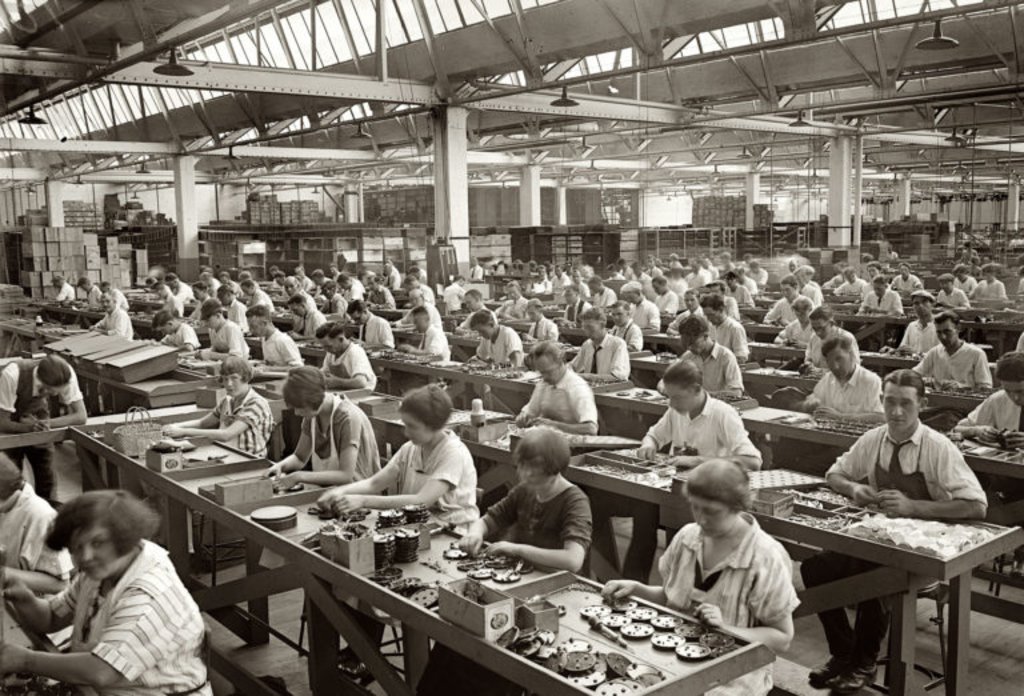200 years of 9-5
WHY IT’S TIME TO SAY GOODBYE TO THE EIGHT-HOUR WORK DAY
Well, we’ve made it: two hundred years of the eight-hour working day. We’ve been putting in our one-third since 1817. Well done everyone!
A lot has changed in that time and if you take a look at the working world two centuries ago, you really start to get a new appreciation for what we have now.1
In 1817, the Industrial Revolution was in full swing: machines were more sophisticated, output skyrocketed and to maximise that exploding new potential, manufacturing companies were making their factories run around the clock.

Great news for the manufacturing company; not so great for the workers, who had to see out all kinds of unthinkable working hours to keep those machines going.
Conditions got so bad that things had to change. In 1833, for example, a bill was passed saying that anyone between the ages of 9-13 could work an absolute maximum of eight hours a day. Which, I’m sure we can all agree, was a good start.
It was even earlier than that, back in 1817, that social reformer, Robert Owen first suggested the eight-hour working day with his maxim: “eight hours labour, eight hours recreation, eight hours rest”. It slowly but surely became the norm across the working world.
In 1817, when the alternative was: ‘do physical labour until you literally can’t stand up’, that was a pretty welcome idea. We also agree that nine-year-olds shouldn’t have to put in ten-hour shifts on the power loom. But we’d also like to submit that things have moved on a bit since.
So why exactly are we still clinging to the eight-hour working day?
This year’s Office for National Statistics (ONS) figures show that employees make up over 84.4% of all UK workers and the vast majority (conservatively over two-thirds) of all workers are turning up at 9am to sit at a desk until the afternoon. That’s around 20 million people working a strict eight-hour day. We all know how often that can spill over the 5:30 mark to creep into your ‘eight hours recreation’.
In a time when clouds, laptops and video conferencing allow many jobs to be carried out anywhere from Morden to Mozambique (or, anywhere with a working internet connection), the increase in people working from home is a no-brainer. And when fewer people are tied to their desks and daily commutes, there’s simply no room for a strict timetable.
What’s more, and bear with us here, the human brain simply isn’t designed to concentrate for that long. Robert Owen’s well-meaning slogan was based on physical labour, but with so many of us doing creative, analytical or administrative jobs, it’s a different game entirely.
Researchers have found that the human mind can focus on any given task for 90-120 minutes. After that, it needs at least a 20 minute break to get back up to peak performance. It’s been called the ultradian rhythm and it means that one scheduled break in an eight-hour day is no way to get the best out of people. There might be professions in which the 9-5 will linger, but it’s by no means right for everyone.
Ultimately, for the majority of modern professions, it comes down to two things: trust, and tradition.
Firstly, workers have to be trusted with the agency to get the work done on their own timetable. And secondly, the traditional way of doing things, outdated since the second half of its 200-year reign, has to go the way of the power loom.
It’s hard for us to imagine a society in which a child under ten would be working for over ten hours at a time. We can only hope that by the time today’s nine-year-olds enter the workplace, they’ll think the same of the eight-hour working day.
If you share our passion for flexible work, please share your thoughts in our survey here. With your feedback, we can lead the conversation in creating a better way to work. We truly believe that flexibility and freedom are essential to #lovewhatyoudo every day. Join us in the workstyle movement! ⠀
—
1 Clients can be tough, sure. I mean, who hasn’t found themselves staying up all night to finish, let’s say, a project with a one-word brief, that word being ‘fun’, only to be told that it just isn’t ‘fun’ enough, and that it needs starting from scratch, and that by the way, if possible, they need it tomorrow, kind regards, Sharon. But see: Sharon and her kind regards would be a lot tougher to deal with without, say, a flushing toilet on site. Or a chair.
Alex Briand is a freelance writer and editor specialising in B2C, food & drink, automotive, and big data. He worked for four years as Editor at a London-based digital agency, on a number of digital magazines for luxury automotive brands. Examples of his work are collected on his website: www.alexbriand.com.
